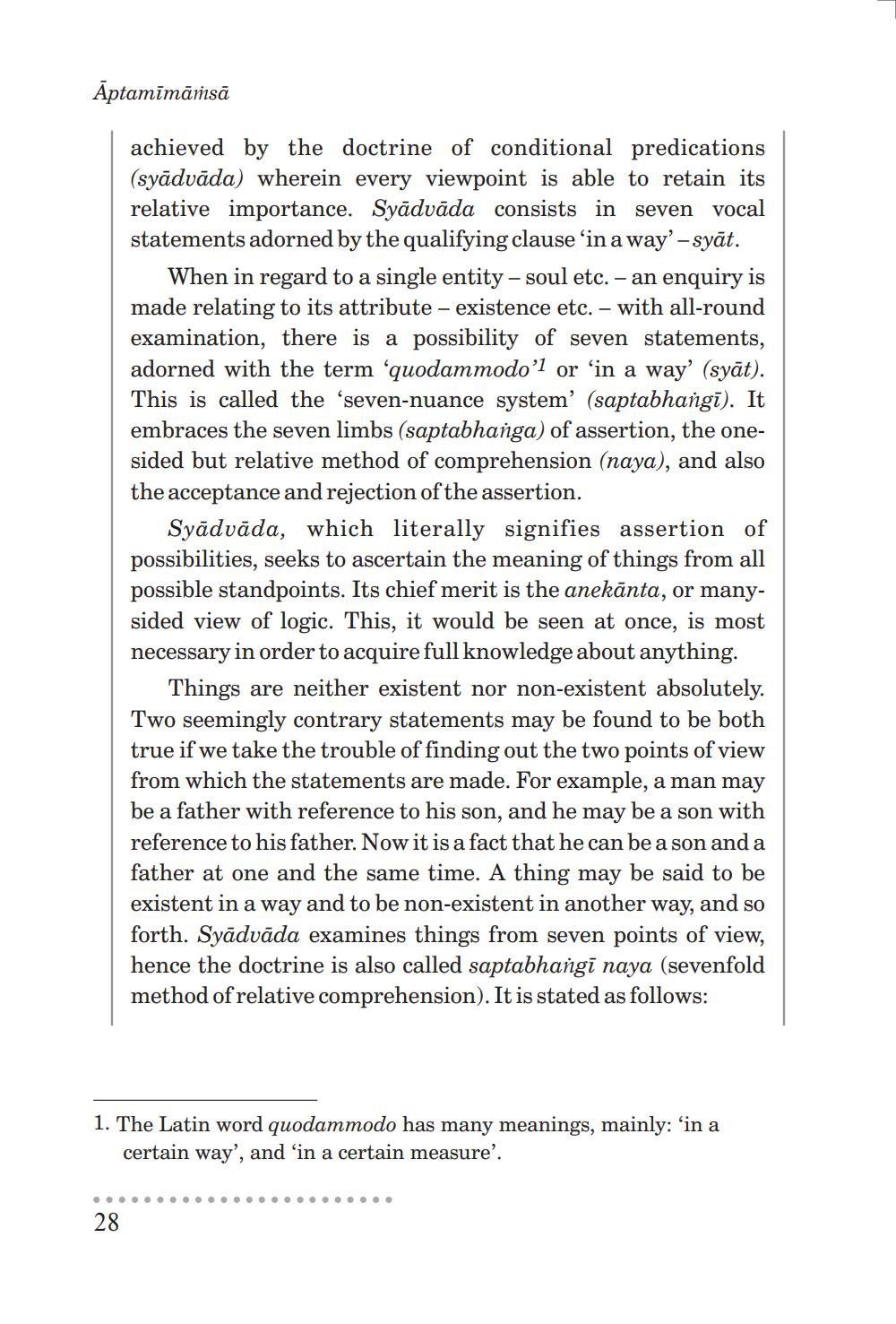________________
Aptamīmāṁsā
achieved by the doctrine of conditional predications (syādvāda) wherein every viewpoint is able to retain its relative importance. Syādvāda consists in seven vocal statements adorned by the qualifying clause ‘in a way'-syāt.
When in regard to a single entity - soul etc. - an enquiry is made relating to its attribute - existence etc. - with all-round examination, there is a possibility of seven statements, adorned with the term 'quodammodo'l or 'in a way' (syāt) This is called the 'seven-nuance system' (saptabhangī). It embraces the seven limbs (saptabhanga) of assertion, the onesided but relative method of comprehension (naya), and also the acceptance and rejection of the assertion.
Syāduāda, which literally signifies assertion of possibilities, seeks to ascertain the meaning of things from all possible standpoints. Its chief merit is the anekānta, or manysided view of logic. This, it would be seen at once, is most necessary in order to acquire full knowledge about anything.
Things are neither existent nor non-existent absolutely. Two seemingly contrary statements may be found to be both true if we take the trouble of finding out the two points of view from which the statements are made. For example, a man may be a father with reference to his son, and he may be a son with reference to his father. Now it is a fact that he can be a son and a father at one and the same time. A thing may be said to be existent in a way and to be non-existent in another way, and so forth. Syādvāda examines things from seven points of view, hence the doctrine is also called saptabhangī naya (sevenfold method of relative comprehension). It is stated as follows:
1. The Latin word quodammodo has many meanings, mainly: 'in a
certain way', and 'in a certain measure'.
28




